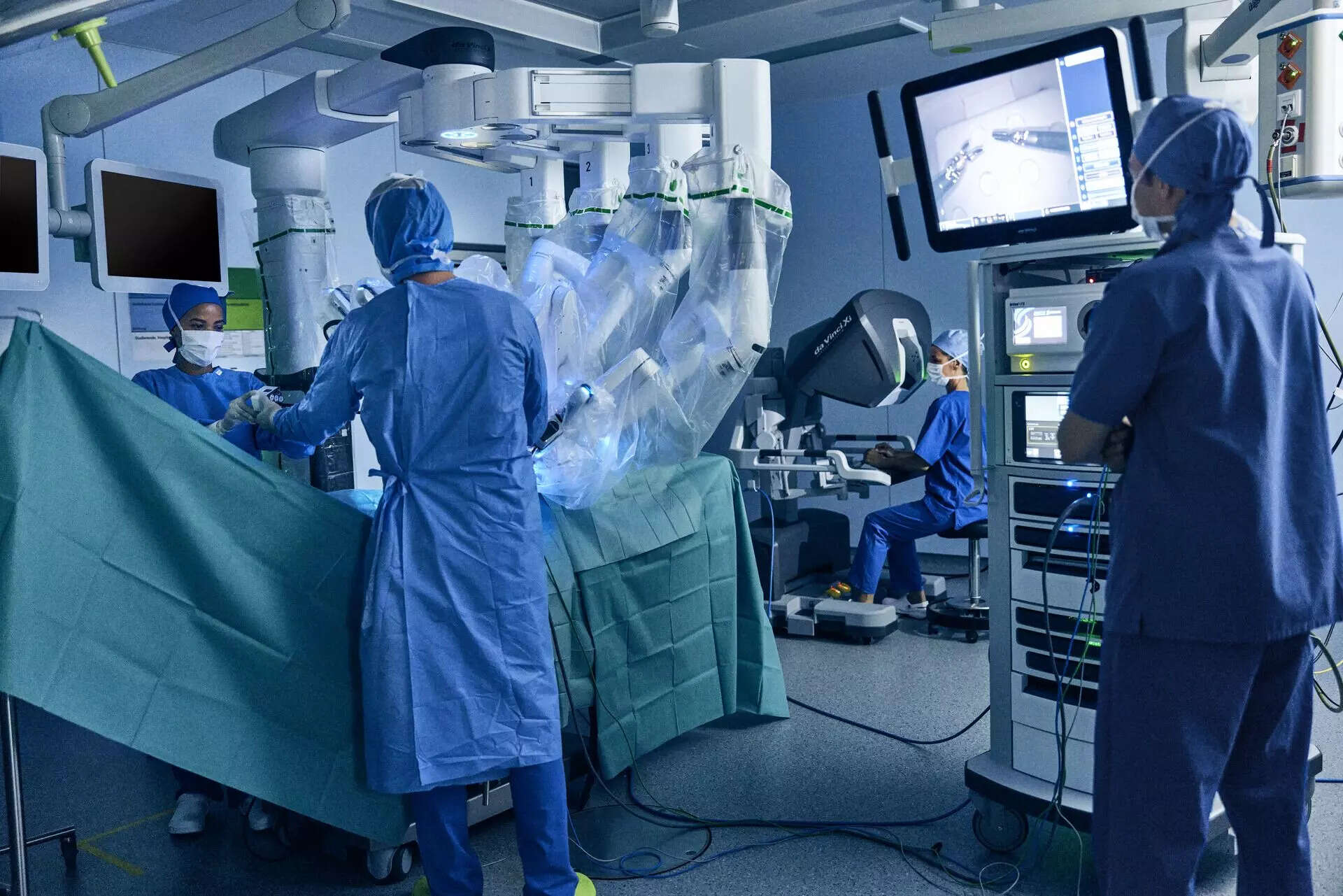- Health IT
- 3 min read
Intuitive India announces study findings of RAPN, using da Vinci surgical system
The results presented in this study demonstrate strong support for an advanced technology, RAPN, establishing its safety and efficacy. This study showcases and reinforces the value and benefits of RAPN to the healthcare community at large.
The aim of this study, the first of its kind in India, was to validate the value and benefits of using the da Vinci surgical system in RAPN in India, providing comprehensive insights into the procedure's efficacy and safety across diverse patient demographics and tumour complexities.
"In India, there has been a need for robust and high-quality data on robotic-assisted partial nephrectomy outcomes tailored to our population," said Dr Sudhir Rawal, Director and Head, Department of Genito Uro Oncology Services, Rajiv Gandhi Cancer Institute and Research Centre.
"Our study results help fill this gap by providing insights into the efficacy and safety of robotic-assisted partial nephrectomy across diverse patient demographics and tumour complexities. This will help provide trained surgeons the confidence in choosing robotic-assisted surgery for renal masses, for better clinical outcomes," said Dr Rawal.
Swati Gupta, Marketing Director, Intuitive India, said, "The data demonstrates the potential of the da Vinci system in improving patient outcomes for robotic-assisted partial nephrectomy in India and lays the groundwork for further advancements in robotic surgery nationwide. Collaboration with leading Indian institutions and surgeons has provided valuable insights specific to the Indian patient population. Going forward, this knowledge will be crucial in refining surgical techniques and expanding access to minimally invasive robotic surgery for more patients. We are proud to have contributed to this important research and look forward to its positive impact on patient care in India."
Key findings from the study include:
Perioperative outcomes: RAPN using da Vinci demonstrated favourable perioperative outcomes, with a median operative time of 180 minutes and a median estimated blood loss of 100 ml. The mean warm ischemia time (WIT) was 22.7 minutes, with a low conversion rate to open surgery (0.4 per cent) and a manageable complication rate where majority of complications were minor grade.
Functional outcomes: RAPN using da Vinci showed promising functional outcomes, with mean serum creatinine and estimated glomerular filtration rate (eGFR) levels stabilising postoperatively. Trifecta and pentafecta outcomes were achieved in 61.4 per cent and 60 per cent of patients, respectively, highlighting the procedure's efficacy in preserving renal function.
Comparative analysis: The study compared favourably with international benchmarks, demonstrating comparable outcomes to previous multicentric analyses while reflecting the real-world scenario with centres of varying volumes and surgeon expertise.
"While partial nephrectomy has emerged as the preferred treatment approach for renal masses, our study supports the efficacy of using the da Vinci system in India for these procedures," said Dr Rawal. "By establishing a comprehensive database of clinical outcomes, we aim to pave the way for further advancements in this area tailored to our population."
The results presented in this study demonstrate strong support for an advanced technology, RAPN, establishing its safety and efficacy. This study showcases and reinforces the value and benefits of RAPN to the healthcare community at large.



COMMENTS
All Comments
By commenting, you agree to the Prohibited Content Policy
PostBy commenting, you agree to the Prohibited Content Policy
PostFind this Comment Offensive?
Choose your reason below and click on the submit button. This will alert our moderators to take actions